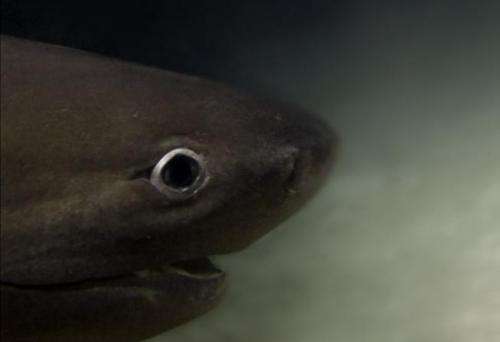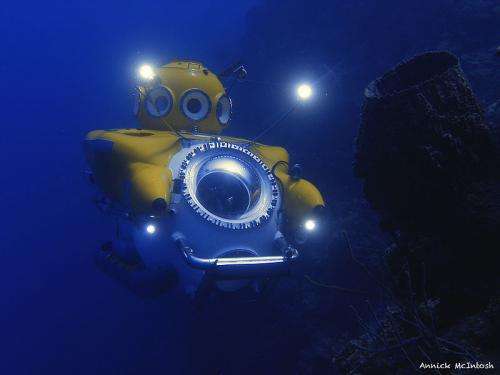Researcher Raising Public Money to Conduct Deep-sea Shark Research Using a Submarine

A graduate student at the University of Hawai'i at Manoa is raising money through the crowdfunding platform Experiment.com to place satellite tags on a species of deep-sea shark, in collaboration with a submarine operator in Honduras.
The team is hoping to: discover migration information on the shark species (Blunt nose sixgill), test the science capabilities of their submarine, integrate their findings with modeling data, and distribute the information to countries in the region to provide appropriate conservation measures.
The shark species, H. griseus, is found throughout the world including locations as far apart as the states of Hawai'i and Virginia. The sharks are typically below 600 feet, can grow over 15 feet, and have been recorded as large as 1300 pounds. Despite the depths at which they live, sixgills are impacted by commercial fishing. The International Union for the Conservation of Nature (the global environmental agency which provides ratings for species vulnerability to extinction) recognizes that a lack of population data and incomplete fishing data makes this specie's vulnerability to population declines difficult to predict.
The team hopes their project will contribute to on-going research to tag this species through more traditional means. Brandon Genco explains:
"We want to combine results from this [proposed project] with researches who are tagging sixgills in places other than Honduras. We hope that our small pilot project can provide a basis for new methods and can be used to tag any number of animals in the biggest unknown wilderness of our planet. A major part of our project is to increase the accuracy of the [satellite] tags at depth and integrate those results with real time satellite derived environmental variables, such as changing light patterns and the results of climate change models.

This is an interesting time in deep-sea research. Technology is allowing us to explore and collaborate in ways we couldn't do before, and we also know that the deep-sea is indeed vulnerable to human caused impacts. We need to do this kind of basic biology in order to provide baselines before we do irreversible damage to our last frontier."
Mr. Genco explains the use of the submarine:
"...[the sub], allows us to tags these animals with minimal disturbance, to get information we could otherwise not get, plus we can test out new techniques. The reality is that it's increasingly difficult to obtain [research] ship time and funding. We hope to demonstrate that creative partnerships can help scientists to do the research that is needed, and gives them the freedom to make discoveries."
The submarine is operated by the Roatan Institute of Deepsea Exploration (RIDE), on the island of Roatan Honduras. RIDE conducts submarine dive trips for tourists, in addition to partnering with scientists.
The project has 9 days remaining to meet a funding target of $17,400.
Project link:
https://experiment.com/projects/can-a-submarine-be-used-to-tag-giant-deep-sea-sharks
More information:
Mr. Brandon Genco
email: bmgenco@hawaii.edu
Provided by University of Hawaii at Manoa